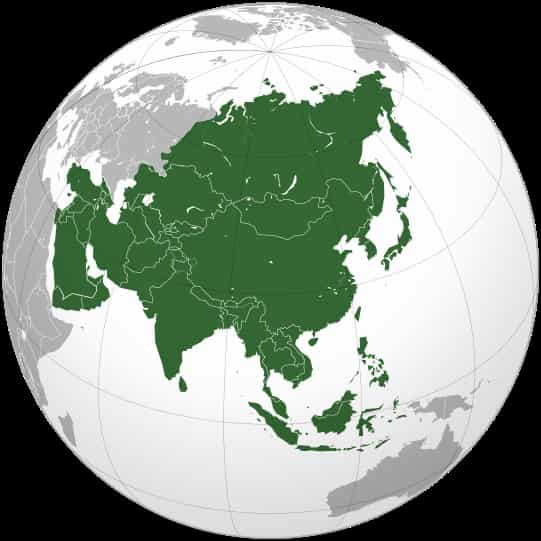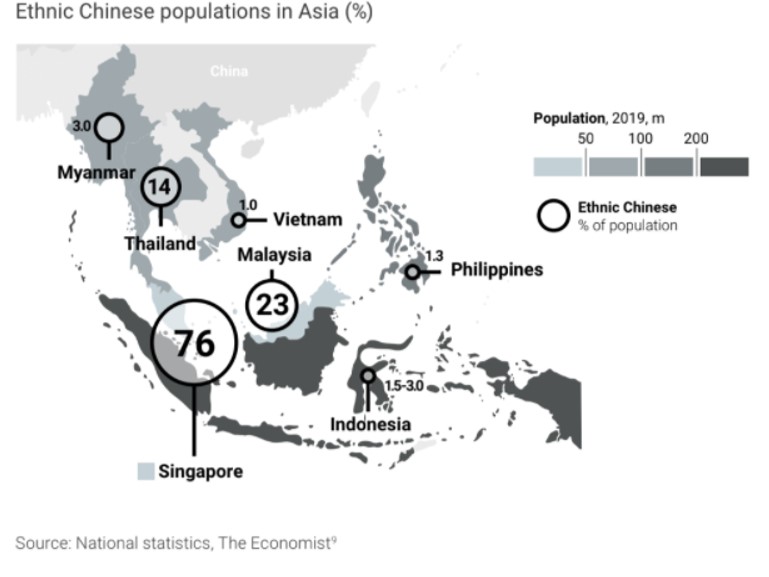WM Market Reports
Charting Overseas Chinese Families' Wealth Prowess - DBS, EIU Study

The network of Chinese families across Southeast Asia is sometimes called "the bamboo network." There are specific cultural and family structure features that wealth managers and private bankers must understand to serve this group effectively.
Overseas Chinese families controlled more than three-quarters of
Southeast Asia’s $369 billion in wealth, highlighting why it is
so important to understand specific drivers of wealth creation
and governance in this group, a study says.
The adoption of a family office among overseas Chinese HNW
business families in Asia is growing. However, there are various
cultural reasons why family governance mechanisms, such as
succession planning and risk management strategies, are slower to
catch on, including their hesitance to seek or trust outside
advice or unwillingness to break with birth-order hierarchy or
succession traditions. That is one of the findings of a
36-page report from the Economist Intelligence Unit entitled
Governance and succession: Family offices and the Chinese
diaspora in Asia, sponsored by Singapore-based DBS.
As wealth in Asia grows, new Chinese families are joining the HNW
ranks, and the structure and investment objectives of Chinese
families are changing. Adopting family governance has the
potential to protect family businesses for generations while
allowing all family members to be involved in advancing their
legacy and wealth into the future, the report said.
Ethnic Chinese account for around 5 per cent of Southeast Asia’s
650 million people but dominate the region’s $3
trillion economy.
The rapid growth of HNW wealth among overseas Chinese, sometimes
dubbed the “bamboo network,” is clearly a big attraction for
private banks, advisory firms and family office creators across
the region. Despite headwinds caused by the pandemic, and
mainland China’s trade rows with Washington, Asia’s general
ascent in the number of millionaires remains powerful.
This report chronicles the history and dynamics of the Chinese
diaspora in Asia, the cultural constructs and other factors
influencing their wealth planning decisions, and the family
office and family governance structures taking shape today.
“Despite being a key contributor of global wealth, many of the
Chinese diaspora have yet to institutionalise a formal system
with which to manage their assets, oftentimes due to deep-set
traditions or cultural reasons. However, we do see this changing
in view of these families’ evolving dynamics and growing wealth,
and with many now on the cusp of passing the baton to the next
generation,” Lee Woon Shiu, group head of wealth planning, family
office and insurance solutions, DBS Private Bank, said.
“The pandemic is further accelerating this shift, having reminded
families of their potential vulnerabilities and the importance of
planning with stability and longevity in mind. For families that
have already set up family offices, many are also relooking their
structures to ensure greater agility and adaptability in times of
change,” he continued.
Perhaps unsurprisingly, Lee broadcast the merits of Singapore for
such overseas Chinese.
“We see a long runway of growth for Singapore’s family office
landscape and, as a leading bank in both Singapore and Asia, our
deep understanding of regional business dynamics, regulations and
cultural nuances, as well as our extensive Asian insights,
networks, and connectivity to the family office ecosystem, leave
us in good stead to partner these families on their wealth
journey,” he added.
